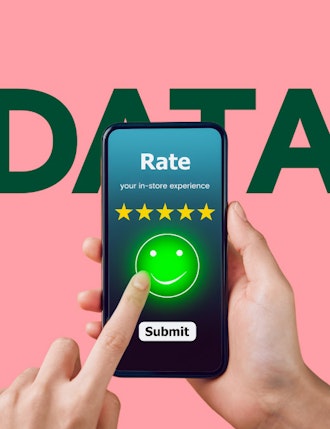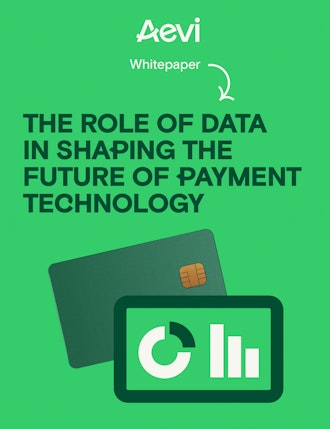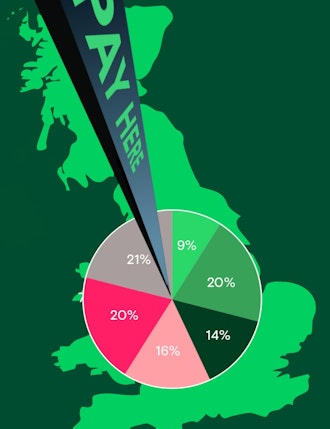As the world evolves to become more data and technology-centric, are we all truly making the most of data available to us? Could we be doing more? Maybe smart data is the way forwards…
The new big data: what you need to know about smart data
Nowadays, business operations and decision-making centre around data collection and how such information is used to create value between consumers and merchants. Data collection plays a crucial role for many as it contributes to essential business aspects such as decision-making, market research, and understanding consumer behaviour.
When gathering data from consumers, companies opt to take advantage of big data software to assess and review these data. However, big data processes slowly become inefficient and inconvenient, as it requires an additional step of data analysis and summary, which could negatively affect conversion within their brand. This is where smart data comes in.
We discuss what smart data is all about and how its processes significantly boost your data collection practices, achieving better and more robust customer satisfaction and conversion within your brand.
What is smart data?
In contrast to big data, smart data is a collection of data that makes sense. With big data, companies receive a large mass of information that requires to be amassed, groomed, and analysed before businesses can extract value from such information. In the case of smart data, the data has already been extracted and analysed through artificial intelligence (AI) and machine learning (ML) algorithms.
Moreover, smart data is a smaller set of valuable and actionable information that companies can readily use when they receive such data. This significantly reduces operation time, allowing companies to operate quicker and perform faster time-to-market decisions for their brand.
The difference between smart data and big data
Although both functions effectively collect and analyse data, there are significant differences between smart data and big data in functionality and effectiveness. These aspects contribute greatly to specific business needs depending on the certain endpoint that you want to achieve.
Data quality and accuracy
As mentioned, big data and smart data collect information differently. Big data processes collect a large sum of disorganized and random information provided by consumers, requiring data analysts to further study and analyse the data before gaining value. With smart data, collation and analysis already come as it is being collected thanks to AI and ML algorithms.
The difference between data quality and accuracy between the two processes is significantly different. Smart data sources information through smart sensors and big data that has been screened and optimized for action, enabling them to get value out of the data instantly and make more accurate decisions.
Targeting specific business needs
Part of data collection is utilizing it as a means of targeting certain business problems. Having the right data can help you solve and overcome the issues your company is currently facing. Moreover, properly collecting data can be the difference between a successful and unsuccessful business venture.
When using big data, it is likely for your company to get lost in the amount of data your receive. According to a survey conducted by TransUnion, around 71% of senior marketers found the data they received from big data processes to be overwhelming. This resulted in a waste of resources and time as they needed to seek help from data analysts to make sense of the data they received. Moreover, about 69% admitted to have been derailed from their primary marketing goal due to the sum of information they had to filter and analyse.
With smart data, you can gather sets of data that are targeted and specific to your business needs. By using AI and ML algorithms, smart data processing can filter a specific set of information as they collect and analyse the data.
Tech integration and metrics
Smart data is a relatively new development for data collection and information processing purposes. That said, most smart data processes require you to use the latest technology and metrics system to fully maximize its features.
In comparison to smart data, big data doesn’t necessarily require high speed, up-to-date software for you to optimally use its processes. However, with the rapid growth of technological advances today, it is best to incorporate and make use of the latest technology into your business processes, such as the metrics provided by your payment platform, to place you ahead of your competitors.
Personalisation and curation
Big data excels at collecting a broad range of information about your company’s customer base, allowing you to get an eagle-eye view over your market. However, such variety can hinder you to provide a more personalized and tailor fit service and content to their customers.
In comparison, smart data can help ensure that you provide a more curated and personalized set of products and services by collecting data that is more contextualized and calibrated to specific consumer needs.
As smart data processing increasingly becomes more popular between industries, it is ideal that you consider switching or implementing such methods into your data collection and processing practices. Doing so allows you to focus on providing personalized and consumer-driven products and services that can result in increased customer satisfaction and conversion for your brand.
Why should you consider using smart data for FinTech?
With numerous emerging technologies within the finance industry, fintech companies are active in implementing and adapting new ways to help satisfy the growing needs of their consumers. As we continuously dive deeper into the age of technology, it is best to ensure that your company stays on top of such trends to remain relevant to today’s needs.
According to studies, 41% of FinTech companies struggle to leverage data for analytics, and AI, while 60% find difficulty in connecting with customers’ applications and data systems. This hinders fintech companies from making informed decisions to curate products and services for their customers.
Take a smarter approach to data
So why should you consider switching or adapting to smart data for fintech needs? The answer is simple. Smart data expedites the process of data collection and processing by providing valuable and actionable information in an instant. This significantly reduces the time spent on sorting and analysing large amounts of data, allowing you to focus on specific data that addresses your business’ and ultimately your consumer needs.
As the fintech industry grows and evolves, it is crucial to be aware and stay on top of trends that enable your company to improve its relations with its customers. Having a good understanding of your consumer needs can help you provide more personalized products and services to your customers, which can increase customer satisfaction and conversions towards your brand.
Interested in reading more around this subject? Here are some useful articles…













